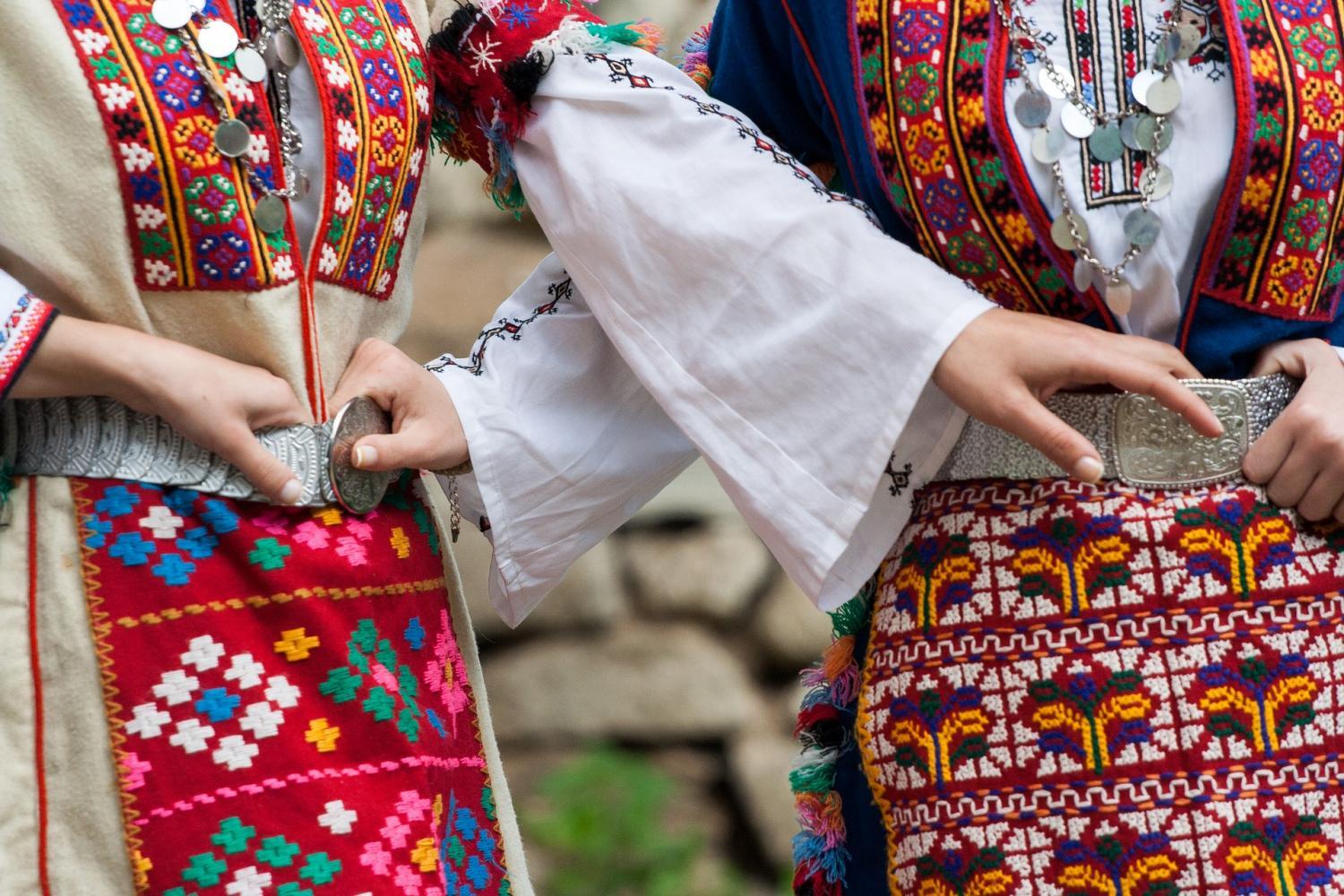Overview of life in Bulgaria: is it really cheap?
Bulgaria, located at the crossroads of Eastern and Western Europe, attracts the attention of many people from different countries due to its rich history, picturesque scenery and unique culture. In recent years, this Balkan corner has become a popular emigration and vacation destination, not least because of its attractive standard of living. However, is Bulgaria really as cheap as it is often touted to be? In this review, we take a look at the main aspects of living in Bulgaria, including the cost of housing, food, utilities and other living expenses. Understanding these factors will help you gain a better understanding of the country and whether it is suitable for living or a long-term stay.
Table of Contents
- Housing and rental prices in Bulgaria
- Comparison of food and nutrition costs
- Transportation and its accessibility in everyday life
- Salary level and employment opportunities
- Medical care and its costs
- Culture and entertainment: what you can afford
- Advantages and disadvantages of living in Bulgaria
- Frequent questions and answers
- Conclusion
Housing and rental prices in Bulgaria
Life in Bulgaria attracts many people with its diversity and, unlike in Western Europe, with its more affordable housing and rental prices. In the larger cities, such as Sofia and Varna, the cost of renting an apartment can vary depending on the neighborhood. Usually, minimum prices for one-room apartments are:
| City | Price range (EUR) |
|---|---|
| Sofia | 300 — 800 |
| Varna | 250 - 600 |
| Plovdiv | 200 - 500 |
For those who are considering buying real estate, the situation also imposes its own peculiarities. Prices for houses and apartments in Bulgaria are much lower than in most European countries, which makes the country attractive for investment. For example, you can find real estate on the Black Sea coast, starting from:
- 50,000 EUR for a small apartment
- 100,000 EUR for a house in good condition
- 150,000 EUR for larger housing
However, it should be taken into account that prices also depend on the stage of development of the area and proximity to tourist centers, which can significantly affect future investments.
Comparison of food and nutrition costs
When it comes to the cost of groceries and food in Bulgaria, many people again think about the comparison with other European countries. In general, most goods are in an affordable price range, making the country an attractive place to live and tourist destination. Supermarkets offer a wide range of products, from local exotic fruits to imported delicacies. Here are some examples of basic food prices:
- Bread (500 g): 0.50 - 1.00 BGN
- Milk (1 liters): 1.00 - 1.50 BGN
- Eggs (10 pcs): 3.00 - 4.00 BGN
- Chicken fillet (1 kg): 6.00 - 10.00 BGN.
- Potatoes (1 kg): 0.80 - 1.50 BGN
Also, a good option for saving money is to visit local markets where you can buy fresh products at lower prices. From time to time, there are sales and promotions that make shopping even more profitable. For convenience, there are many convenience stores and small stores that can provide goods at more flexible prices. Let's look at an approximate price range for lunch at a café:
| Dish | Price (BGN) |
|---|---|
| Soup | 2.50 — 4.00 |
| Main course | 8.00 - 15.00 |
| Dessert | 3.00 — 6.00 |
| A glass of wine | 3.00 — 5.00 |
Transportation and its accessibility in everyday life
Bulgaria's transportation system plays an important role in the daily life of locals and tourists. In major cities such as Sofia, Plovdiv and Varna, public transportation is represented by with buses, streetcars and subways which makes traveling around the city convenient and affordable. This is especially important for people who prefer to save money on cabs or private cars. For smaller communities, there are bus stations to get to central cities, as well as popular routes between communities.
As for transportation prices, they remain at a fairly low level compared to most Western European countries. The average fare for public transportation is as low as 1.50 levs (approximately 0.75 euros), making it affordable for most people. Therefore, when choosing Bulgaria for living or traveling, it is worth paying attention to the advantages of the local transportation system:
- Diversity of modes of transportation
- Low fare
- Convenient routes
- Frequent schedule
Salary level and employment opportunities
In recent years, Bulgaria has attracted the attention of foreign specialists due to the competitive salaries and employment opportunities in various sectors of the economy. The average salary level in the country varies, but in general it is lower than in Western Europe. However, it is worth noting, that the cost of living in Bulgaria is also lower, which makes the country attractive to migrants. The main areas where jobs can be found include:
- IT and technology: The sector is growing rapidly, and specialists of various profiles are required.
- Tourism: offers many opportunities for seasonal and permanent employment.
- Services: hotels, restaurants and small businesses, especially in large cities.
As for employment opportunitiesIt is worth paying attention to the number of open vacancies and the unemployment rate. According to statistics, the unemployment rate in Bulgaria at the moment is approx. 4,5%, which is one of the lowest numbers in the country in recent years. Below is the table with the number of open vacancies in different fields:
| sector | Number of vacancies |
|---|---|
| IT and technology | 3,500+ |
| Tourism | 1,200+ |
| Services | 2,000+ |
These statistics confirm that employment is not a problem for professionals in these fields, and salary levels can vary depending on skills and experience.
Medical care and its costs
In Bulgaria, the health care system offers both public and private services. Public facilities are funded through taxes, making them accessible to citizens and registered residents. However, waiting lists can be long, and the level of service does not always meet expectations. Private clinics, on the other hand, provide faster and better service, but the cost of such services can vary considerably. The main factors affecting price include:
- Type of treatment: prevention, diagnosis, surgery.
- Location: services in large cities such as Sofia or Varna are usually more expensive.
- Physician Qualifications: well-known experts may ask for higher fees.
To illustrate, let's look at approximate rates for basic medical services in private clinics:
| Service | Average cost (BGN) |
|---|---|
| Doctor's consultation | 50 - 100 |
| General blood test | 20 — 30 |
| ULTRASOUND | 70 - 120 |
| Magnetic resonance imaging (MRI) | 200 — 400 |
Health insurance also plays an important role in keeping costs down. Insurance is available for both locals and foreigners and can cover a variety of medical services. The cost of insurance varies, but on average it costs 30-80 BGN per month depending on the package and company, making medical care more affordable for those planning a long stay in the country.

Culture and entertainment: what you can afford
Living in Bulgaria offers many opportunities for cultural leisure and entertainment that can satisfy all tastes and budgets. Here you can enjoy affordable theaters, museumsas well as attending concerts и exhibitions. Local events take place regularly, and many are free or cost a nominal amount. Here are some leisure options:
- Visiting the state theater - tickets from 10 to 30 BGN.
- Museums - often free admission on certain days of the month
- Festivals and folk festivals - no entrance fee
- Tours of historical sites - prices vary from 15 to 50 BGN.
Culinary delights in Bulgaria are also available in a wide range. Local cuisine will please both gourmets and those who prefer a more simple meal. The average restaurant bill can be as low as BGN 25-40 for a full meal. It is also possible to visit numerous cafe и barswhere prices for drinks and appetizers will pleasantly surprise you. For clarity, here is a table with approximate prices for food and drinks in restaurants:
| Dish/Drink | Price (BGN) |
|---|---|
| Chop salad | 5-8 |
| Kebapche | 10-15 |
| Coffee | 2-4 |
| Beer (0.5 liters) | 2-3 |

Advantages and disadvantages of living in Bulgaria
Life in Bulgaria can be both attractive and challenging depending on your preferences and lifestyle. Among the obvious advantages can be singled out:
- Low cost of living: In general, prices for accommodation, food and services are much lower compared to other European countries.
- Beautiful nature: Bulgaria is famous for its picturesque mountains and beaches, which creates ideal conditions for active vacations.
- Warm climate: Mild winters and sunny summers make the country attractive to those looking to escape the cold weather.
- Affordable Medicine: The health care system in Bulgaria is considered to be of good quality and affordable.
On the other hand, there are also shortcomingswhich may be significant for some people:
- Language barrier: The percentage of the population that speaks English is not that high, which can create difficulties in communication.
- Job difficulties: Job availability may be limited to certain areas and competition can be high.
- Corruption: Some aspects of the local economy and administrative procedures may suffer from low levels of transparency.
- Unstable infrastructures: The quality of roads and public transportation can leave much to be desired in some regions.
Frequent questions and answers
Overview of life in Bulgaria: is it really cheap?
Question 1: What are the main costs of living in Bulgaria?
Response: The main costs of living in Bulgaria include rent, utilities, food, transportation and medical care. In large cities, such as Sofia, costs can be higher than in smaller towns or rural areas. On average, renting an apartment can range from 300 to 600 euros per month, depending on the neighborhood.
Question 2: How much cheaper is life in Bulgaria compared to other European countries?
Response: In general, life in Bulgaria is cheaper than in most Western European countries. Prices for food, transportation and housing are significantly lower than, for example, in Germany, France or the UK. However, the cost of living can be comparable to other Eastern European countries such as Romania or Hungary.
Question 3: What is the cost of food in Bulgaria?
Response: Food prices in Bulgaria are quite reasonable. Basic products may include: bread (0.50-1.50 EUR), milk (0.80-1.20 EUR per liter), meat (5-10 EUR per kilogram) and fruits/vegetables (prices vary depending on the season). Local markets often offer lower prices than supermarkets.
Question 4: What is the case with medical services?
Response: In Bulgaria, there are both public and private health care facilities. Public health care provides low-cost services, but foreigners may find it more useful to choose private clinics where prices remain affordable compared to Western Europe. Health insurance is also recommended to cover unexpected expenses.
Question 5: What is the state of transportation in the country?
Response: The transportation system in Bulgaria includes bus, trolleybus and streetcar networks that provide convenient travel. Ticket prices are quite low: a single ticket for public transportation costs about 1 euro. Cabs are also relatively inexpensive, but it is recommended to check the price in advance.
Question 6: Are there any hidden costs to be aware of?
Response: Yes, as in any other country, residents of Bulgaria may face some hidden costs. These may include property taxes, garbage collection fees, and possible unforeseen expenses for home repairs and appliances. You should also consider the cost of living if you plan to actively participate in recreational activities, traveling etc.
Question 7: Is Bulgaria suitable for a long term stay?
Response: Bulgaria is suitable for long-term residence due to its diverse natural landscapes, affordable living and favorable climate. Many expatriates choose Bulgaria for permanent residence because of its cultural heritage, good recreation by the sea and mountains, and friendly robots. However, it is important to consider the level of local language skills and integration into society when planning a long-term residence.
Conclusion
Life in Bulgaria may indeed seem more affordable than in many Western countries, especially in aspects such as the cost of housing, food and household services. However, as in any other country, the overall cost of living depends on individual needs and lifestyle. In addition, it is important to consider changes in the economic situation and inflation rates that may affect price rates in the future. For those considering a move to Bulgaria or a long-term stay, it is worth researching in detail the regional characteristics as well as the standard of living in specific cities. Making an informed decision about living in Bulgaria requires consideration of both financial and cultural aspects, which will maximize the enjoyment of the country.






